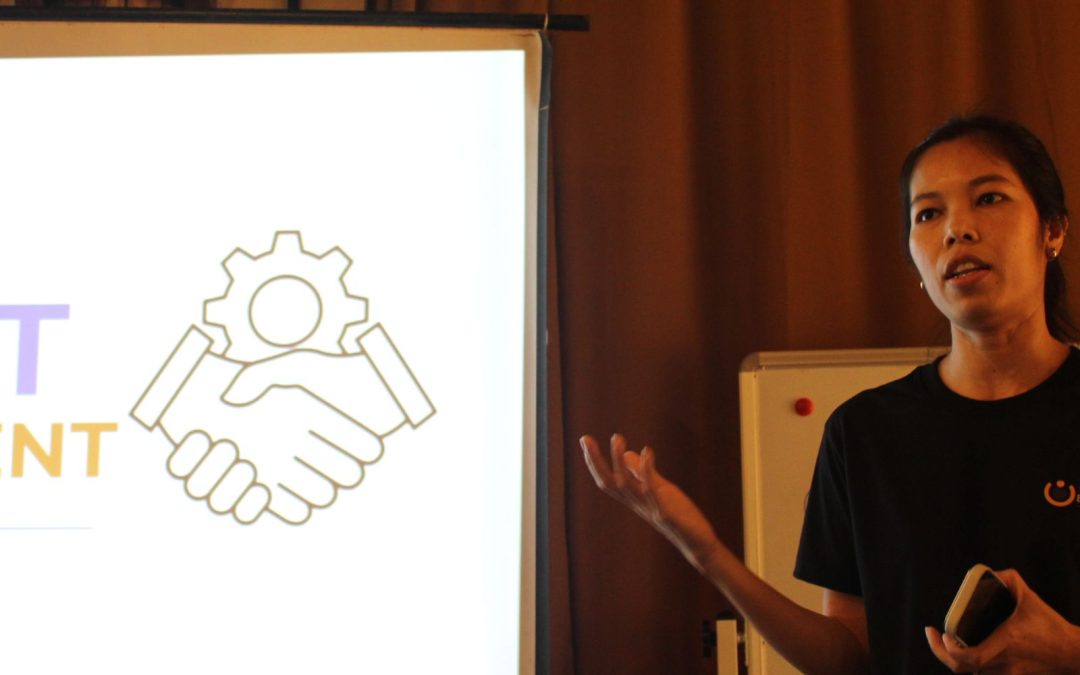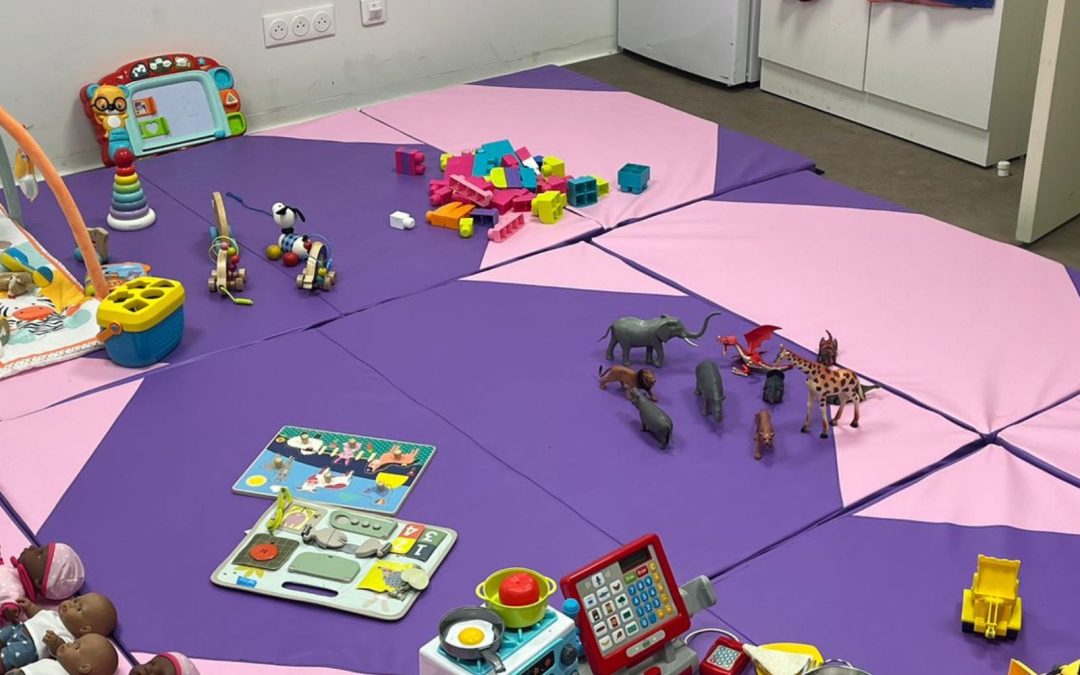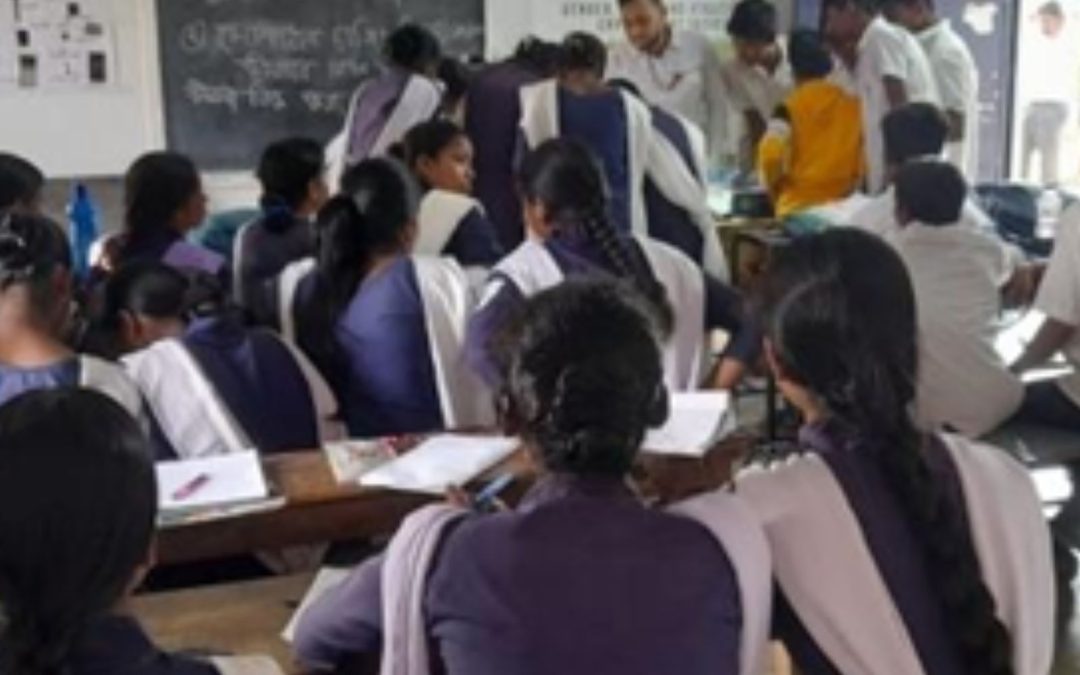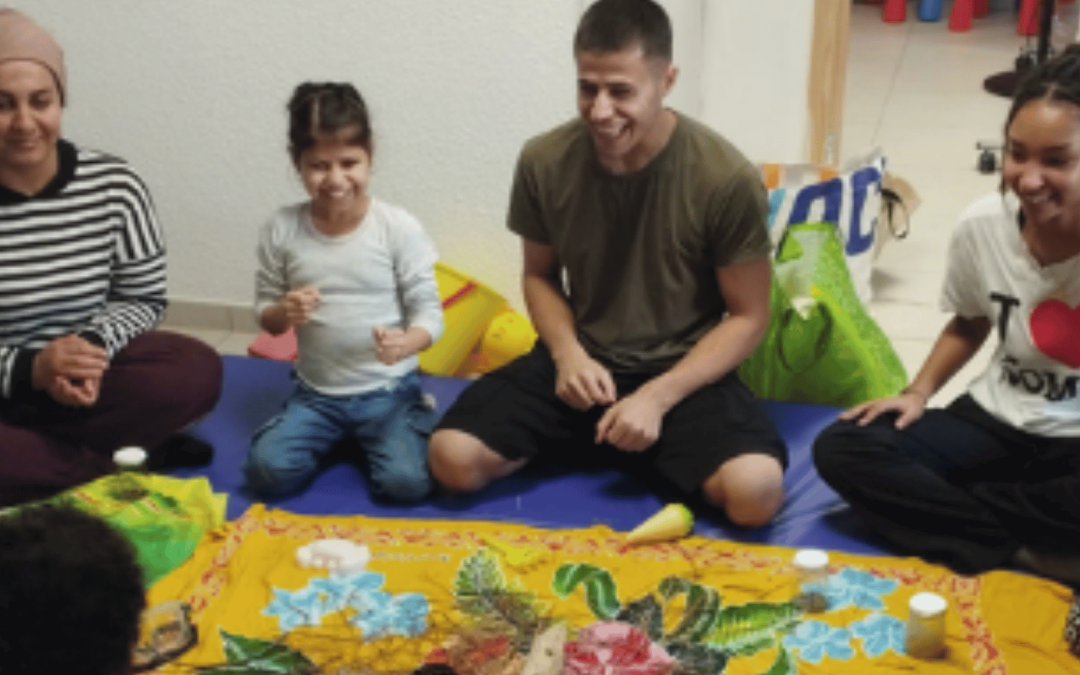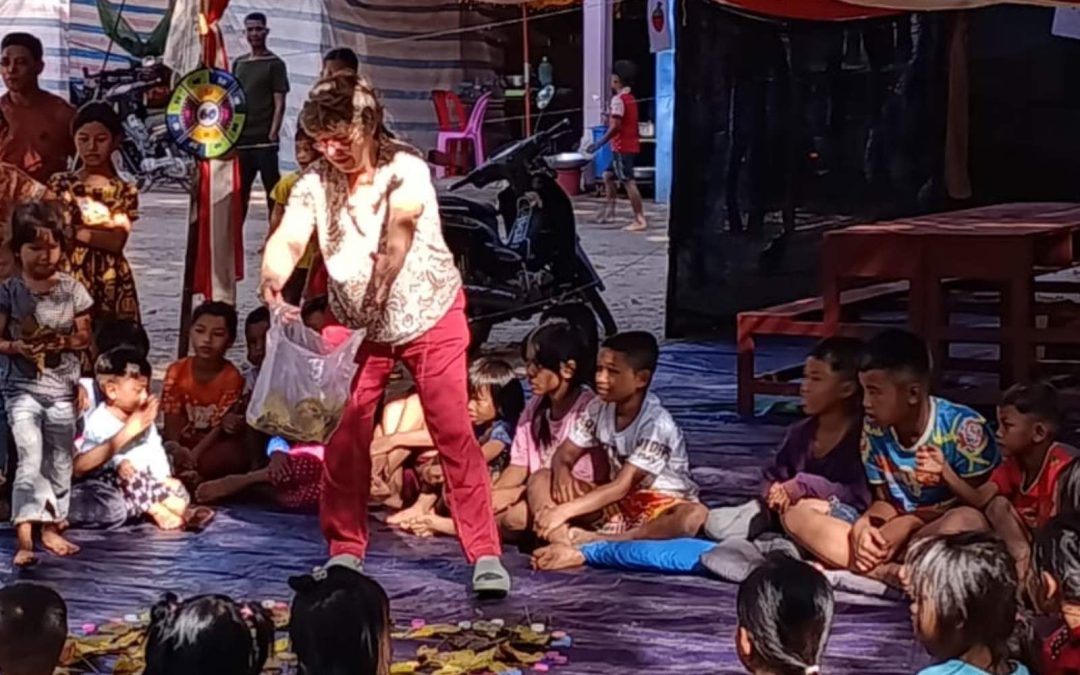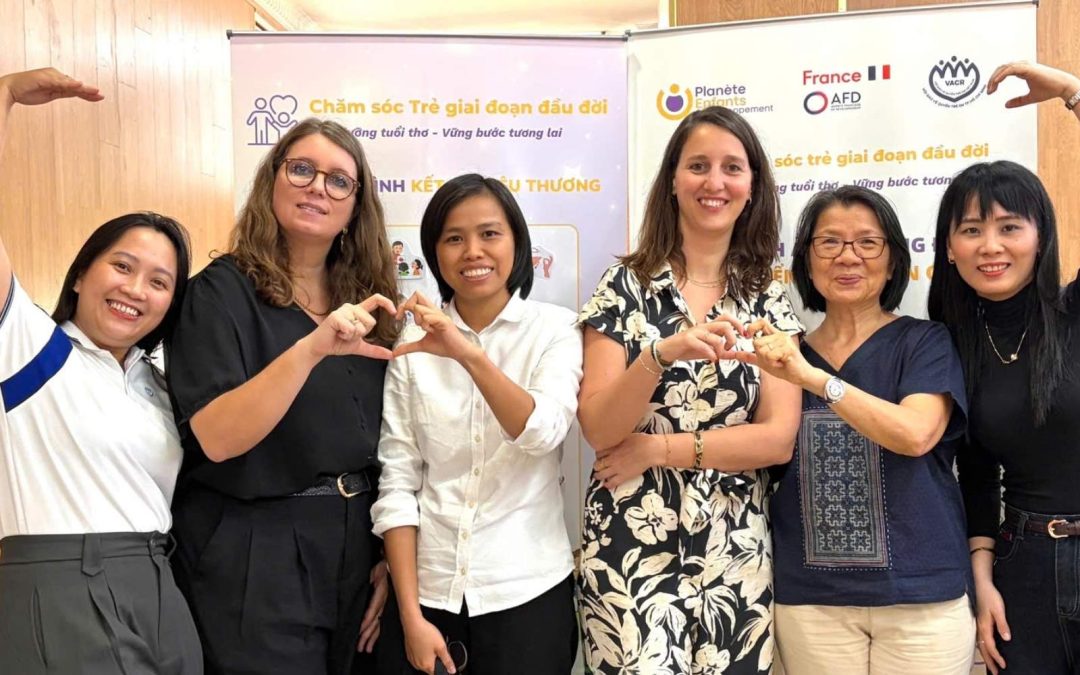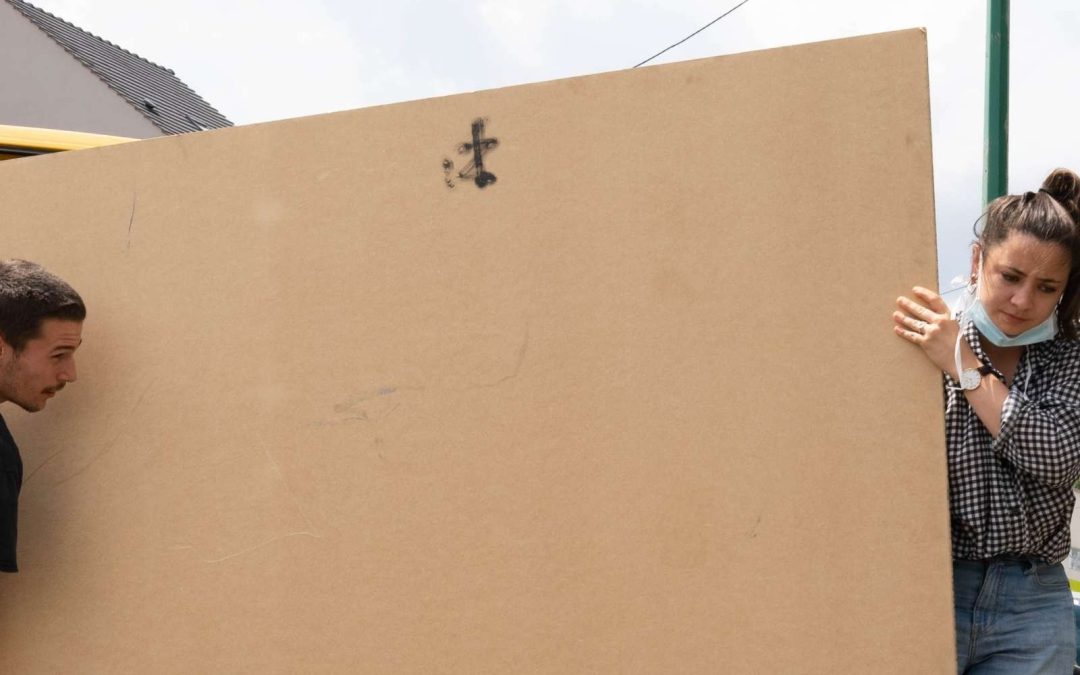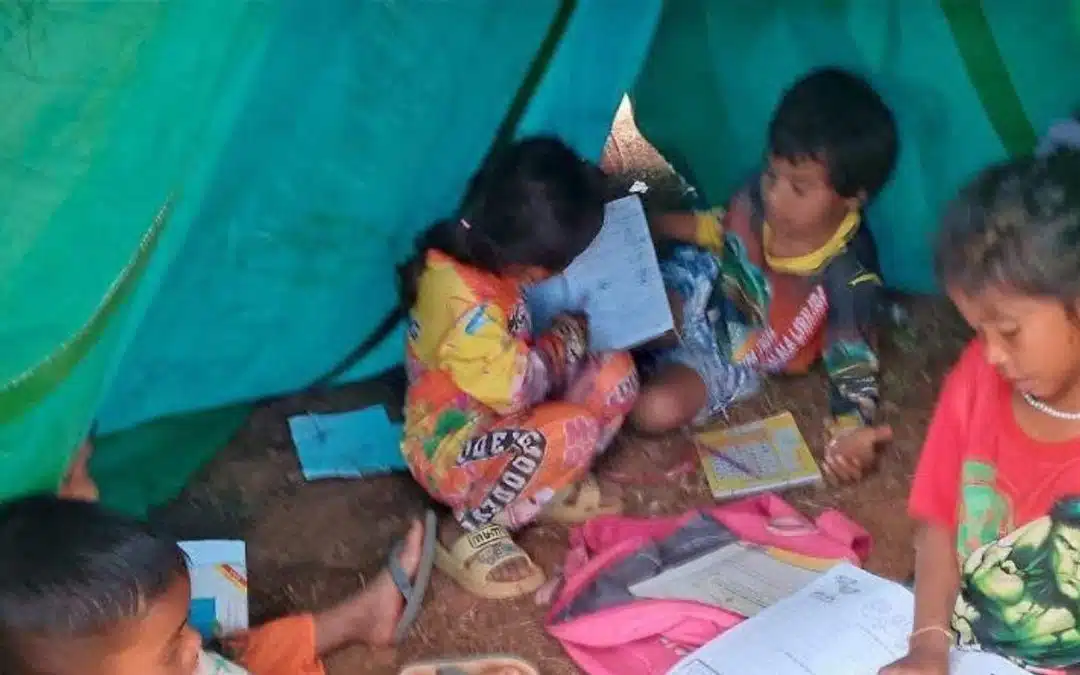Planète Enfants & Développement and its Cambodian partner Bandos Komar have just been selected by the European Union which will finance the support of 100 community kindergartens in 4 provinces of the country. This is a great recognition of our experience in the field and a great opportunity to further anchor the major role of early childhood education in the country.
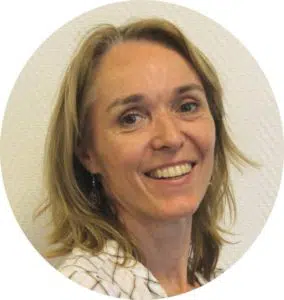 Véronique Jenn-Treyer, co-director of the association, looks back on this victory and the history of our association with La Petite Enfance in Cambodia.
Véronique Jenn-Treyer, co-director of the association, looks back on this victory and the history of our association with La Petite Enfance in Cambodia.
We are talking about supporting 100 community kindergartens in Cambodia. What does this mean in concrete terms?
In 2008, Cambodia passed a decentralization law that gives local authorities responsibility for managing early childhood services. But in a 2015 assessment with Unicef, we found gaps in district and provincial management and monitoring of preschools, jeopardizing their sustainability. Our project now aims to empower school management committees and local authorities to fully assume their role and responsibility. To do so, we will train them on the Cambodian legislative framework, particularly on the standards that community schools must respect. We will create and support management committees in each of the communes concerned on a daily basis. This will involve building their capacity in several areas: planning their budget, formalizing requests for support and subsidies from the Ministry of Education for additional training for female teachers, equipping themselves with teaching materials and making the necessary renovations to the buildings. Following a December 2017 decree, community schools that reach a certain level are certified and supported directly by the ministry, which ensures three times the salary for teachers.
Who will benefit from this project?
Starting in 2020 and for a period of 3 years, we will support 20 commune councils in 4 provinces: Kampot, Kampong Speu, Sihanoukville and Pursat; this covers 100 kindergartens. In fact, 100 teachers will be able to work in better conditions, 2,000 children aged 3 to 6 will benefit from quality schooling, 4,000 parents will be convinced of the importance of education from the earliest age and there will be a collective awareness of the issues at stake from the age of 3.
The history of the association with Early Childhood in Cambodia is not new. Can you tell us about it ?
Indeed, our experience with community schools in Cambodia goes back several decades. When we arrived in the country in 1984, pre-schools did not exist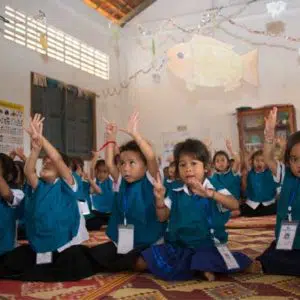 almost none. First, in the countryside, we identified and trained teachers and set up an economic model with income-generating activities to finance schools. At the same time we inspired and supported the Ministry of Education to open kindergarten classes within elementary school. Then, in the 1990s, we were the first, with UNICEF, to develop an alternative school model to the public school system, at low cost and managed at the commune level, which made it possible to accelerate the supply, which was then very insufficient. First in villages, then in urban areas in the 2000s. We created 150 community kindergartens in the country. The model quickly proved its worth and the Cambodian government officially adopted it in 2002, in addition to the public school model, which is progressing very slowly. Since then, the World Bank, UNICEF and many NGOs have adopted it to support the commune councils in the creation of more than 3000 kindergartens.
almost none. First, in the countryside, we identified and trained teachers and set up an economic model with income-generating activities to finance schools. At the same time we inspired and supported the Ministry of Education to open kindergarten classes within elementary school. Then, in the 1990s, we were the first, with UNICEF, to develop an alternative school model to the public school system, at low cost and managed at the commune level, which made it possible to accelerate the supply, which was then very insufficient. First in villages, then in urban areas in the 2000s. We created 150 community kindergartens in the country. The model quickly proved its worth and the Cambodian government officially adopted it in 2002, in addition to the public school model, which is progressing very slowly. Since then, the World Bank, UNICEF and many NGOs have adopted it to support the commune councils in the creation of more than 3000 kindergartens.
Experimenting with small-scale models, ensuring that they are taken up by local people and that they multiply, is in our DNA. So we're very proud of this new development today.
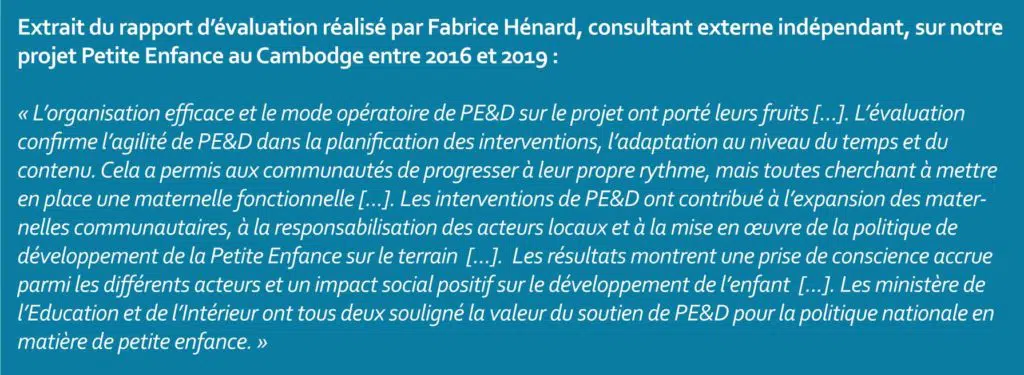 November 2019
November 2019

